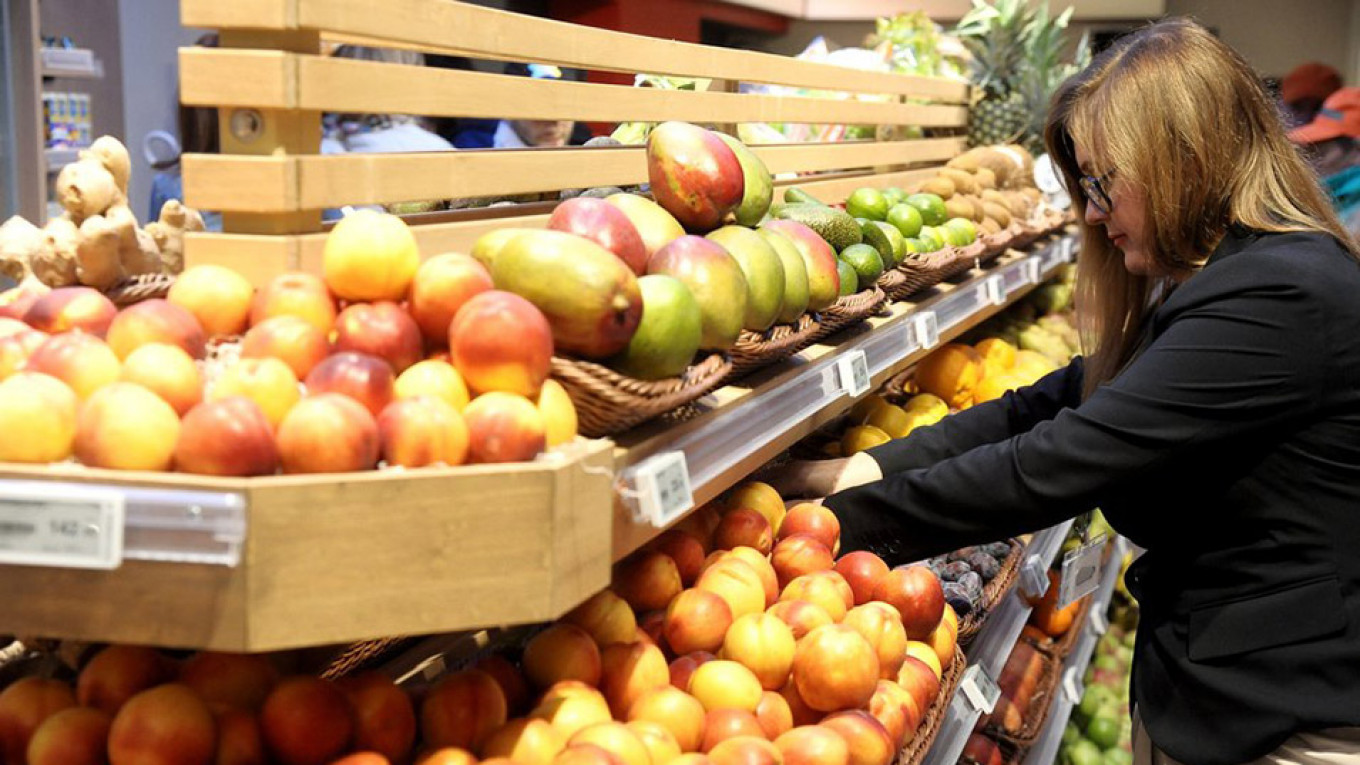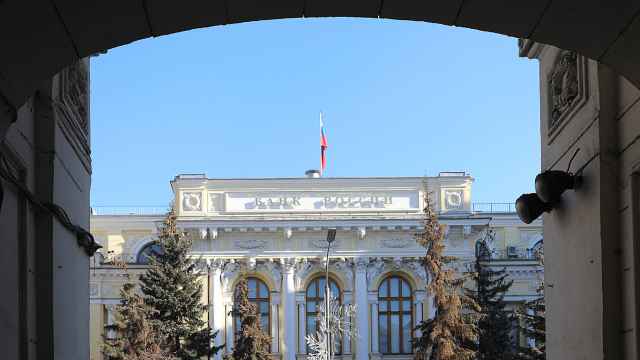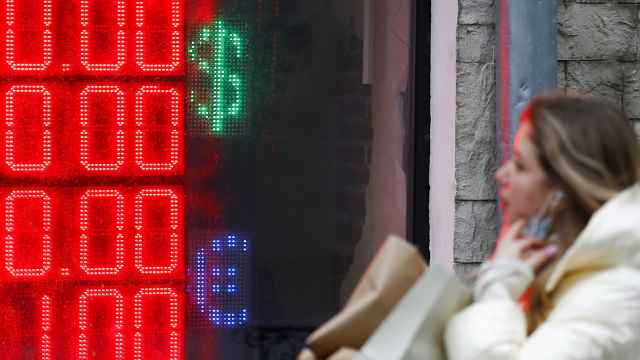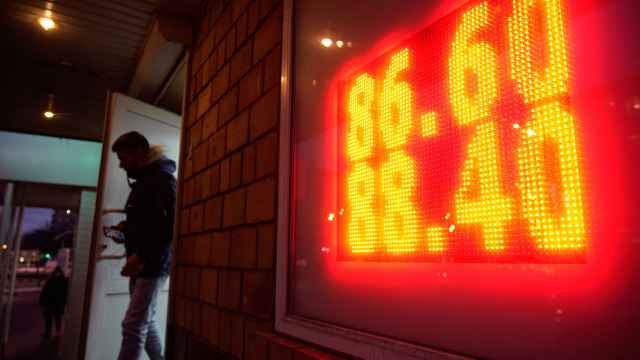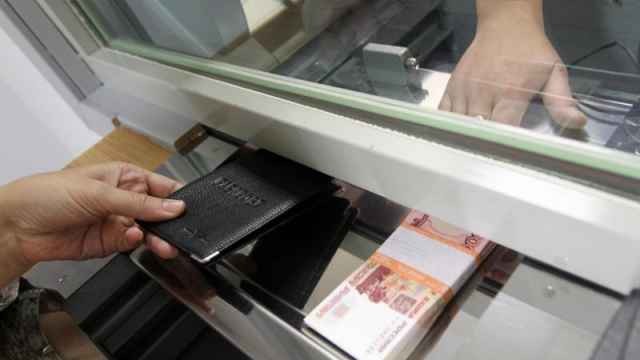Russian consumer price inflation (CPI) fell back to the Central Bank of Russia's target level of 4% opening the way for more rate cuts, Rosstat reported on October 7.
Inflation is the biggest concern for the average Russian and after falling to a post-Soviet low of 2.3% in the middle last year, it rose again at the start of this year to over 5% on the back of oil price rises, sanction fears and a hike of 2 percentage points in the VAT rate in January.
The Central Bank set a target level of 4% and hiked rates twice at the end of last year. But the impact of the VAT hike has been mild and inflation has fallen faster than expected. The Central Bank has cut rates three times this year already, the last time lowering the monetary policy rate by 25 basis points to 7%. It is expected to continue to lower rates with more cuts, but not before the New Year starts.
Russia posted two months of negative growth in consumer prices in the summer. Rosstat reported the monthly CPI rate for September at -0.2% month-on-month — the same as in August. This was the first time during the period from August to September 2017 that consumer prices fell for two consecutive months.

Deflation in seasonal fresh food was the prime driver for the negative price growth (prices for fruit and veg fell 6.3% last month), with cuts to the cost of passenger transportation (-3.7% last month) the other important factor, reports BCS Global Markets.
On average, food was 0.4% cheaper month-on-month, while the cost of public services fell 0.2% and prices of non-food consumer goods rose 0.2%. The annualized CPI rate fell from 4.3% in August to 4% year-on-year, thus fully matching the CBR’s long-term inflation target.
“Deceleration in inflation was widely expected and unsurprising. However, the main issue is whether the future CPI rate will remain under control, which is far from granted — we reiterate our 2020 forecast of 3.8% year-on-year (vs the govt’s 3%),” BSC Global Markets chief economist Vladimir Tikhomirov said in a note.
In her comments following the announcement by Rosstat, the Central Bank’s First Deputy Chief Yudaeva did not rule out another rate cut but added that the bank will carefully assess all factors before making its rate decision. The next monetary policy meeting is on October 25.
“We agree that the current level of inflation, as well as the projected further falls in the CPI rate over the next few months, do offer more space to maneuver in the monetary area. Thus, from a pure technical and macro perspective a 25 basis point rate cut seems like a done deal, probably as early as this month,” said Tikhomirov.
“However, we see a variety of strong pro-inflation factors appearing on the horizon within the next 6-10 months — these include a rise in budget spending, planned increases to wages and pensions, a reversal in the base factor effect and uncertainty over the global economy and the state of commodity markets.”
An emotional debate has broken out amongst the liberal fraction that runs Russia’s macro and fiscal policy over the proposed spending that is part of the 27 trillion ruble national projects program ordered by president Vladimir Putin. The Central Bank in particular worries about the inflationary pressure associated with such a large increase in spending and is erring on the side of caution as a result.
BCS expects annualized inflation to start reversing sometime in the second quarter of 2020 after reaching 3.1-3.2% year-on-year and has a full year CPI forecast of 3.8% year-on-year for 2020. The official government estimate is much more optimistic, predicting that inflation will be 3% for all of next year.
A Message from The Moscow Times:
Dear readers,
We are facing unprecedented challenges. Russia's Prosecutor General's Office has designated The Moscow Times as an "undesirable" organization, criminalizing our work and putting our staff at risk of prosecution. This follows our earlier unjust labeling as a "foreign agent."
These actions are direct attempts to silence independent journalism in Russia. The authorities claim our work "discredits the decisions of the Russian leadership." We see things differently: we strive to provide accurate, unbiased reporting on Russia.
We, the journalists of The Moscow Times, refuse to be silenced. But to continue our work, we need your help.
Your support, no matter how small, makes a world of difference. If you can, please support us monthly starting from just $2. It's quick to set up, and every contribution makes a significant impact.
By supporting The Moscow Times, you're defending open, independent journalism in the face of repression. Thank you for standing with us.
Remind me later.


